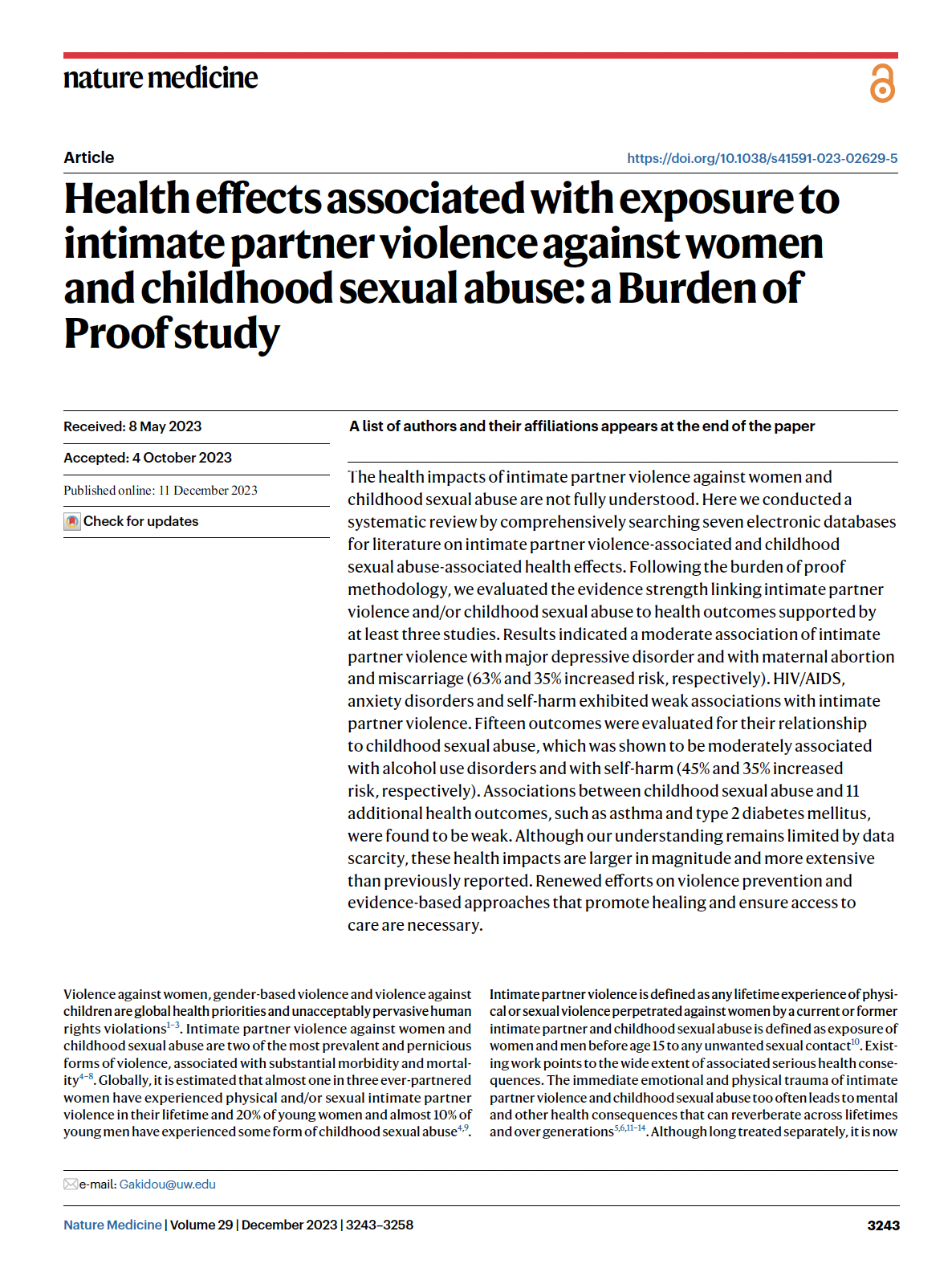The authors of this systematic review comprehensively searched seven electronic databases for literature on intimate partner violence-associated and childhood sexual abuse-associated health effects. Following the burden of proof methodology, they evaluated the evidence strength linking intimate partner violence and/or childhood sexual abuse to health outcomes supported by at least three studies. Results indicated a moderate association of intimate partner violence with major depressive disorder and with maternal abortion and miscarriage (63% and 35% increased risk, respectively). Fifteen outcomes were evaluated for their relationship to childhood sexual abuse, which was shown to be moderately associated with alcohol use disorders and with self-harm (45% and 35% increased risk, respectively). Although our understanding remains limited by data scarcity, these health impacts are larger in magnitude and more extensive than previously reported. Renewed efforts on violence prevention and evidence-based approaches that promote healing and ensure access to care are necessary.
Published December 11, 2023
Sign up to receive our monthly Research Roundup email, which offers a selection of new public health research from major journals.
Recent Abstracts
Trouble Brewing – The Case for Alcohol Policy (Second Edition)
Lessons from Vietnam’s Campaign for a Tax on Sugar-Sweetened Beverages
Principles of Alcohol Taxation
Clean Air in Jakarta: Gaps and Possibilities Toward Low Emission Practices
Public Attitudes Towards Alcohol Policy: South Africa
Quality Assurance and Improvement Framework for Medical Certification of Cause of Death and…
More Data Better Health: Climate and Health in the Legal Amazon
Mais Dados Mais Saúde: Clima e Saúde na Amazônia Legal
Health Taxes Action Guide
Opinión pública frente a la política de alcohol: Colombia
